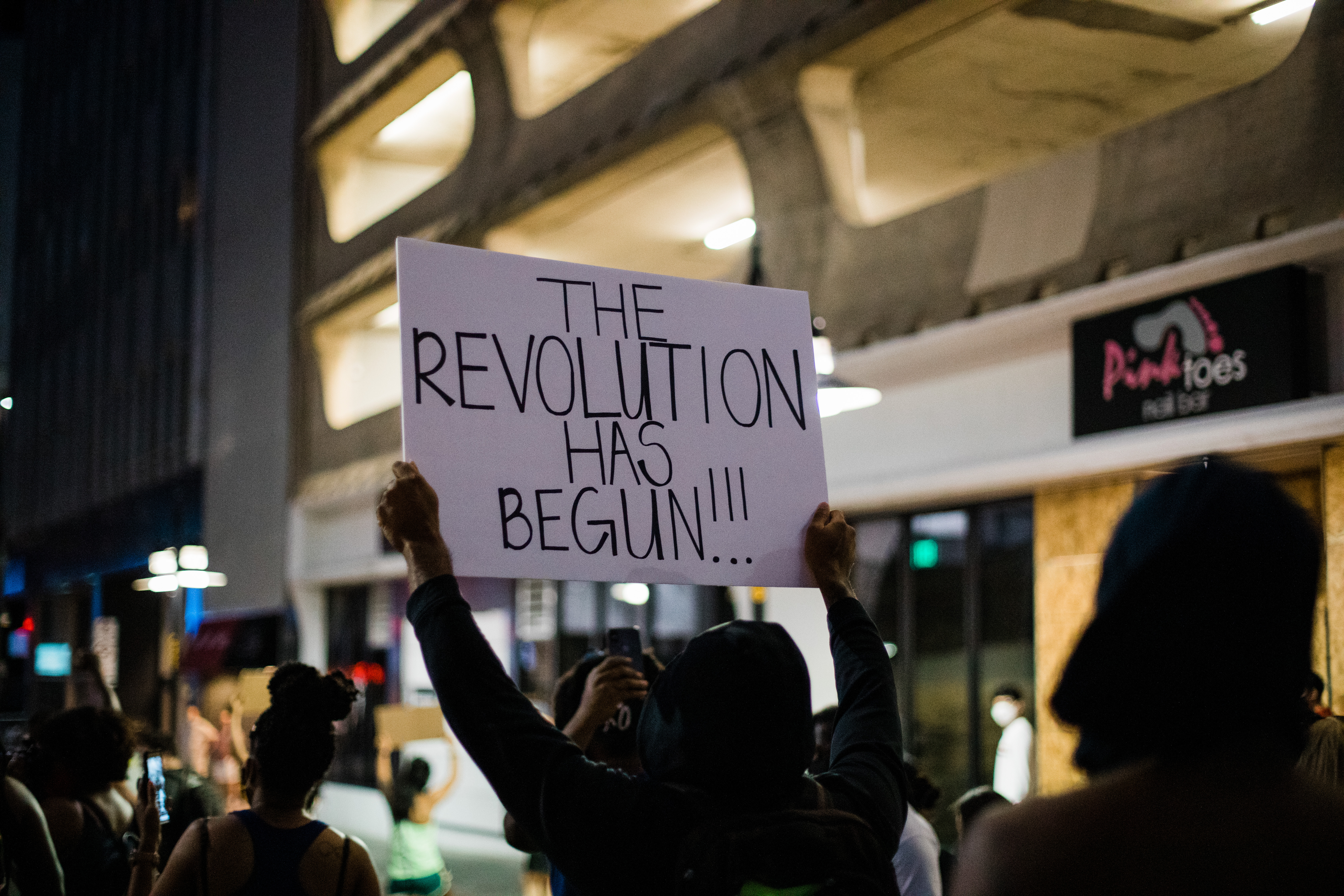From Margins to Mainstream: How Extremism Has Conquered the Political Middle

Just a few years ago, no more than 10,000 supporters of the QAnon conspiracy myth were chatting in the darker corners of the internet. I first started monitoring them from the inside in 2017. Adherents of the Great Replacement myth were meeting up for secretive meetings in Airbnbs or the back rooms of quirky pubs. I joined some of these events undercover for research purposes. Today, many extremist subcultures are no longer hiding from public life. Their narratives, language, and symbols have increasingly penetrated the societal and political mainstream. While extremist ideas on the fringes can inspire terrorist attacks and pose a threat to national security, mainstreamed extremist ideas carry a much more severe long-term danger: they can reverse the human rights and democratic values we take for granted today in Europe and North America.
QAnon proponents have run for US Congress and inspired mass protests across the world, neo-fascist parties have won elections in Europe and entered parliaments. In Germany, the far-right populist party Alternative for Germany has reached the peak of both its radicalism and its popularity. Around 17 percent of Americans believe in QAnon, while 5 percent of the German population hold ideas related to the anti-democratic Reichsbürger movement. Meanwhile, roughly a third of Britons believe that elites in Hollywood, governments, and the media are secretly engaged in child trafficking. Extremist phenomena are no longer confined to the political or societal fringes, they have conquered what we used to call the political middle. How could this happen?
Based on my research for my new book Going Mainstream: how extremists are taking over, four key factors have contributed to the mainstreaming of extremism: crisis grievances; technological amplification; celebrity endorsement; and political legitimisation.
The global polycrisis as catalyst
The Covid-19 pandemic, the Russian aggression war in Ukraine and the ongoing economic crisis have exacerbated existing societal tensions, deepened distrust in democratic, scientific, and media institutions, and set in motion a radicalisation trend that can now be observed in wide parts of the population. Leveraging crisis grievances, QAnon exploded in size and international reach, incel forums saw a strong uptick in their web traffic, and anti-Semitism surged both online and offline. In my interviews with members of incel communities, white nationalists and QAnon proponents I observed recurring patterns in crisis-related fears and frustrations. Several of the interviewees admitted they did not join extremist groups for ideological reasons but were initially looking for a sense of belonging and perspective as a coping strategy in times of loneliness and uncertainty. The combined psychological consequences of a health, security and economic crisis are still under-researched, yet they are likely to outlast the multiple interconnected crises, or what historian Adam Tooze would call a global “polycrisis”.
New technologies as amplifiers
Removal of harmful content and account suspensions tend to happen more effectively and more efficiently on Meta and Google platforms than a few years ago. However, extremists have skilfully adopted ways to circumvent platform regulations and avoid content takedown or moderation. Furthermore, the algorithmic platform designs have not changed significantly. Despite efforts to reduce the spread of so-called borderline content, tech platforms still often give priority to radical, hard-to-believe or apocalyptic content, as long as these broadly comply with the legal frameworks and platform guidelines. Fundamentally, the companies’ business models continue to be based on harvesting our attention, continuing to act as amplifiers of users’ radicalisation pathways. Far right extremists have also begun to exploit of a range of other platforms – from producing viral content on TikTok to using encrypted channels on Telegram. Extremists increasingly bring their followers to alt-tech platforms like Bitchute and Odysee, which then serve as radicalisation rabbit holes, as they host some of the most extreme content while being entirely cut off from outside information.
Celebrity influencers as endorsers
From US actress Roseanne Barr and former baseball pitcher Curt Schilling to German pop singer Michael Wendler and vegan cookbook author Attila Hildmann – most countries have their own QAnon-endorsing celebrity influencers. Moreover, millions of people have watched anti-Semitic tropes spread by Ye (aka Kanye West) and misogynist ideas propagated by Andrew Tate. Celebrity influencers do not only play a key role in the mainstreaming of extremist ideas due to the wide reach they have on social media. Research shows that celebrity endorsement can have an extremely powerful influence on attitudes and behaviours. This effect is particularly dangerous when celebrities give bad medical advice, voice extremist views, or endorse ungrounded conspiracy myths. Individuals who already believe in one conspiracy myth are more prone to buying into additional conspiracy myths, so extremism-endorsing celebrities can trigger a chain reaction in the mainstreaming process.
Politicians as legitimisers
Politicians have increasingly pandered to far-right and conspiracy-myth endorsing population segments over the past few years. Their flirts with language, symbols and narratives that originated in the extreme fringes have normalised and legitimised extremist movements such as QAnon and the international new right. This trend is not limited to neofascist and far right populist parties. Dozens of US congressional candidates (such as elected Colorado congresswoman Lauren Boebert) have been supportive of QAnon. Meanwhile, British Conservative politicians have used far right dog whistles such as “invasion” to speak about migration or “cultural Marxism” to describe policies of the liberal left.
We have witnessed consequences of the normalisation of anti-minority and anti-democratic extremism, in cases such as the US Capitol riot of 6 January 2021. However, this was not the only case of anti-democratic mobilisation fuelled by conspiracy myths. In 2020 German Reichsbürger attempted to storm the Reichstag, in 2022 protesters with QAnon flags clashed with police at New Zealand’s parliament, and in 2023 far -right election deniers attacked the Congress in Brazil. Beyond attacks on democratic institutions and processes, the side effects of mainstreamed extremism include rising hate crimes against minority communities, the reversal of civil rights such as LGBTQ+ and abortion rights, and a pushback against established media and science institutions.
Conclusion
While many studies have focused on understanding radicalisation processes, the mainstreaming process is not entirely understood. Based on a combination of undercover investigations and analysis, Going Mainstream traces the different stages in the mainstreaming process: creating subcultures, cultivating networks, boosting alt-media, provoking backlashes, persuading the masses and waging proxy wars. As outlined above, these stages can be accelerated by crises grievances, new technologies, celebrity influencers and politicians. Perhaps the findings of my book can offer a starting point for discussion and inspiration for potential future studies.


